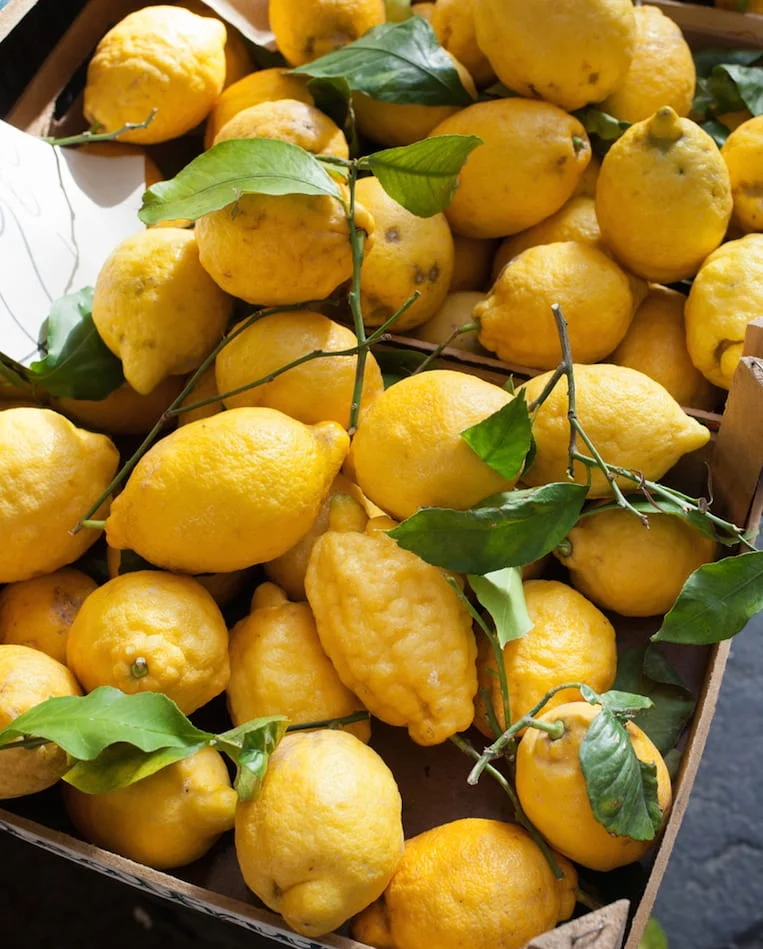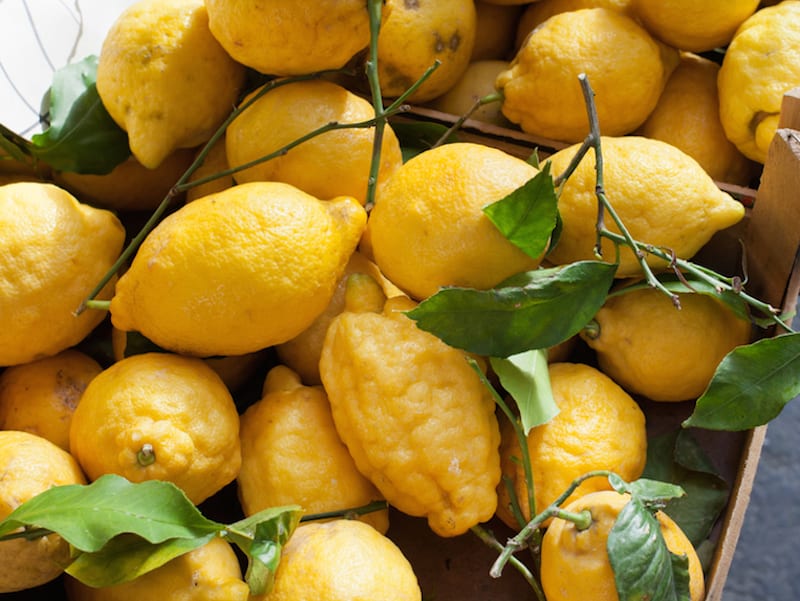Sorrento Lemons are one of the most unique and flexible Italian ingredients. Available year-round, they’re robust enough to be used in a myriad of applications, from savory to sweet. They’re not just for Limoncello!

Sorrento Lemons, Limone di Sorrento, are the authentic and quintessential lemon. At least, according to any good Italian. Grown and harvested on the steep, rocky slopes of the Sorrento Peninsula, these unique species of lemon flowers up to 4 times a year, allowing for a constant harvest. While they’re hard to find in the United States (only being grown in California) and extremely expensive to import, you may have seen Sorrento Lemons in their most common form in markets and at restaurants: Limoncello.
A whopping 60% of all Sorrento Lemons harvested in Italy are used to produce Limoncello. But that’s not the only thing you can use these unique lemons for. In Italy, particularly in Sorrento and on the Amalfi Coast, Sorrento Lemons are utilized in a variety of ways: salted and cured for later use, cooked and turned into jams or preserves, zested to finish off a dish of risotto, roasted to accompany a meat dish, or simply squeezed on at the last moment to elevate the flavor of the main dish. Dessert, entree, sweet dish or savory. They are as essential to Italian cuisine as pasta.
Sorrento Lemons, sadly, aren’t that easy to find. Despite California having the perfect climate for growing Limone di Sorrento, only a handful of domestic locations grow these tasty jewels. Rancho del Sol is one of the few domestic producers of Sorrento Lemons, so checking there first would be the most prudent move. As a result, all true Sorrento Lemons are imported from Italy. If you do import directly from Italy, the wait will be a little long, but the end result is well worth it.















“Most unique”? What sort of rubbish English is that! Unique is unique, can’t be more or most.
“Sorrento lemons” translates as “Limoni di Sorrento”. Limone is singular and it’s written with an i, not an e.
“Here’s a few recipes”? You mean “Here are a few recipes”.
Singular/ Plural is not difficult, really.
where can I buy Sorrento lemons in the U.S.A.?
Or perhaps there is a place where I can have them shipped from Italy to my home?